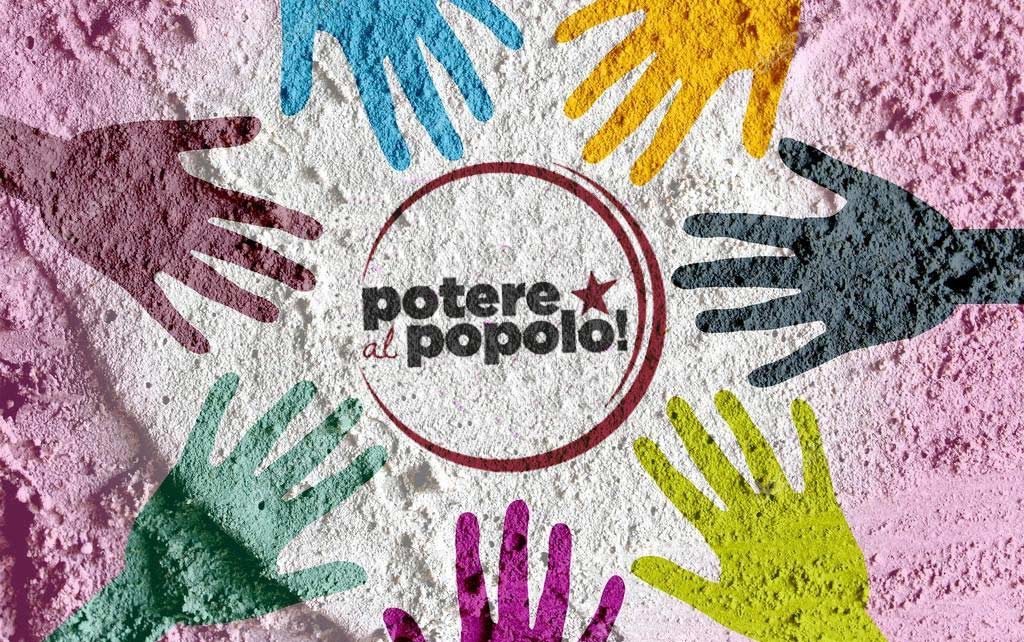Potere al Popolo today concluded its supporter consultation regarding the upcoming European elections. The consultation showed that a significant majority of supporters (73%) are in favour of participating. Potere al Popolo will therefore take part in the 2019 elections to the European Parliament.
As far as how we will participate is concerned, two options were supported by a majority. The first was the option to “participate in the elections under our own name and with our own manifesto” (55%). The second was to “verify possible convergences with other political or civil society organisations (community groups, associations, social movements or political parties) in terms of manifesto commitments” (48%). Neither of the two options reached the majority threshold of 66% needed for the proposal to pass at the first stage. We will therefore be launching a second consultation through our online platform within two weeks. In the meantime, in order to clarify the feasibility of the second option, we are proposing to meet with all political forces that could be interested in the following propositions:
1) We believe that over the last few years it has become increasingly evident that the European Union, with its Treaties and its systems of government, is the inevitable enemy of all forces seeking greater social equality and democratic control of the market and finance. The EU’s treatment of Greece, or the recent rejection of the Italian government’s proposed budget, are just two cases in point. The treaties of the European Union were built on principles that stand in complete contrast to the values of our 1948 Constitution. Furthermore, we should be reminded that these treaties, that have been allowed to prevail over our Constitution and thus significantly undermine it, have never been put to a popular vote in Italy. A break with these treaties is not therefore an ideological question, but rather a necessary precondition if we are to realise the demands the popular classes of Europe, demands that find expression in movements like the French ‘Yellow Vests’. To redistribute wealth, to implement policies aimed at full employment, to nationalise key strategic sectors or companies that would shut up shop and relocate, it is necessary to disobey the rules imposed on us by the European Union. These are the same rules that do not allow us to pursue alternatives to infrastructure projects devastating the environment or to implement a programme of true ecological transition. They are the same rules that do not allow us to guarantee to the majority of the population basic rights such as housing, education, health and access to decent public services.
2) Realising a radically redistributive political programme would be impossible without a radical change in military spending. It would thus require the re-evaluation of our membership of NATO and of our position within the global order. We believe, furthermore, that it is necessary to set in motion processes of genuine cooperation with the Global South, to put a stop to the exploitative nature of current international relations. We must not remain indifferent to the devastation caused to communities and the environment on the other side the Mediterranean by multinationals in their pursuit of profit. Those who are fleeing from war and poverty are oppressed by the same enemy that oppresses us. We must welcome them, and we must fight for humane practices of reception and integration based on the Riace model.
3) We must resist the false binary of a “left-wing” pro-market Europeanism versus right-wing pro-market nationalism, a binary constructed to shut out any opposition to pro-market politics. But in order to break out of this binary we must be coherent in our vision. Those who seek to ride off the back of humanitarian sentiments in defence of migrants but at the same time pursue policies that force people into poverty are not coherent. It is a question of credibility: we cannot cooperate with those who align themselves with the Democratic Party. Unity is a valuable objective, but unity is not brought about by stitching together a patchwork of contradictions. Unity must be based in the class. We must work to create consensus in our social block around concrete issues and around a clear political vision: our politics must serve to make working people stronger, not to allow a residual political class to prolong its survival.
4) Finally, we believe that a truly transformative movement must have at its core a confrontation on all issues surrounding gender, expressed in its politics, in its language and in its internal organisation. In this way we must take the lead from the movement Non Una di Meno, which has been the most important social movement of recent years, in understanding that feminism is not a mere accessory to a political programme, or a niche issue, but rather must be a constitutive element in all our thinking and action.
Over the next few weeks we will be engaging in public debate with all those who share these core values and then we will put the decision once again to the supporters of Potere al Popolo.

